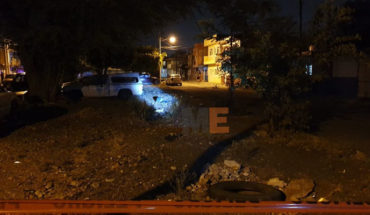The Secretariat of Citizen Participation for the new constituent process was launched a few days ago in a room with the full Expert Commission, university authorities and various political authorities. Without any social organization that participated in the activity, Claudio Troncoso -one of those in charge of the project- said he was “accompanied by a very good team, so that is an element that reassures to carry out this enormous task, which I think is very important, to carry out together with the citizens and the other organs of the constituent process. ” Universities are already working to get citizen apprehensions to their next representatives who will write the draft of the new Constitution.
The Pontificia Universidad Católica de Chile and the Universidad de Chile are in charge of carrying out the task of promoting a process of citizen participation that is capable of involving the population with the constituent process. Process that, until now, was not well known how it would be implemented and that was necessary because there is a constitutional mandate that orders it:
“The regulation will contemplate mechanisms of citizen participation, which will take place once the Constitutional Council is installed and will be coordinated by the University of Chile and the Pontificia Universidad Católica de Chile, through formulas that allow the participation of all accredited universities. These mechanisms will contemplate the popular initiative of norm,” says Article 153 of the current Constitution.
Before the established mechanisms are put in place on 7 June, two processes will be carried out. The first, which is in progress, is a compilation of the work of citizen participation that was done in the previous constitutional processes, that of Bachelet and that of the Constitutional Convention. A collaborative work will be carried out with Civil Society Organizations and the Library of the National Congress that seek to deliver a systematized report by the end of March.
On the other hand, as of April 6, the process of citizen training, civic education and dissemination of the constituent process will begin. The latter will materialize in activities that seek to prepare citizens to be able to effectively be part of the process. Dissemination, civic education, explanation of the constituent process and face-to-face instances will be the forms that the process of citizen training will adopt. In this, the collaboration of accredited universities and State bodies will be even more important.
Once the Constitutional Council is elected, the mechanisms will begin to operate. The first, of Popular Initiatives of Norm, includes the idea of the Constitutional Convention so that people suggest amendments (delete, replace, modify or add norms) to articles of the preliminary draft, through the collection of digital signatures that they will obtain with their unique key. It is clear that not all suggestions will reach the Constitutional Council, but those that reach 10,000 signatures, from at least four different regions and meet the other regulatory requirements. This process will last one month and will begin on June 7.
Another process is Public Hearings. In this instance, different groups and organizations of civil society may request a hearing to express their point of view on any matter related to the draft of the new Constitution. Unlike the Constitutional Convention, only some hearings will be held before the Constitutional Council, the others will be received by the different accredited universities on the basis of a territorial distribution criterion determined by the Executive Secretariat. The period to request hearings begins on June 7 and ends on June 14.
A similar instance is the Citizen Dialogues, which are intended to be a mechanism for dialogue and deliberation on the draft. It aims to be a space of high diversity, representativeness and interaction between groups of citizens, not with the Councilors. The instance will be carried out through a call that will be entrusted to the Secretariat and the other, in an open manner, will participate people or groups with a guideline delivered by the same agency. The dialogues will take place during the first 30 days of the start of the council and then the Secretariat will have 15 days to systematize what It was collected from the dialogues.
The last mechanism is already better known and rescues the methodology made by the previous process: Citizen Consultations. People, in a virtual way with Unique Key, will be able to express brief opinions regarding rules contained in the preliminary draft. This mechanism will be enabled during the first 30 days after the start of the Constitutional Council.
In the previous experience, the process of citizen participation was one of the points where a lot of energy and work was dedicated, because the fact of linking citizens with the process itself seemed to be the key to its success. As is known, this was not necessarily the case and, although this process has mechanisms for participation, the connection of this process with citizens is still due. The president of the Expert Commission, Verónica Undurraga, also assumed it to El Mercurio this weekend: “Citizens are not committed to this process.”
The sociologist of the University of Los Lagos, director of the Center for Research Society and Public Policies, Gonzalo Delamaza, is a reference in the issue of citizen participation and was Director of the Secretariat of Popular Participation in the previous constituent process. From the experience in the Constitutional Convention, he rescues the number of hearings and participation in the Popular Initiatives of Norm: “There were some 1,600 hearings that were held in the stage of elaboration of regulations and definition of commissions and the IPN where 980,000 people participated.” While acknowledging that there were design problems, he acknowledges that other aspects, such as those mentioned, “were very positive.”
The main problems of the previous process, which in some way serve to contrast it with the one already underway, is time. Delamaza emphasizes that “adequate time” is needed to systematize and at the same time comply with the delivery of the proposal for a new Constitution. In addition, he believes that “The fact that Chile had never held one like the one made by the Convention, made it difficult to be aware of that, both for participation and in general for constitutional deliberation.”
Until now, citizens have not been part of the constituent project and, for the academic, “it is obvious that this process, this third attempt, is an attempt designed based on the interests of political resolution of Congress and in a certain way the Executive.” In short, he warns that we must bear in mind that the process has less time than the previous process and “it is a process with very clear limits and therefore the possibilities of the participatory process are lower.”
However, the sociologist highlights the fact that there is a period of citizen training and socialization and, as there are fewer mechanisms to deploy, “they can be explained easier.” A point that has ambivalent factors is that the results of the participation will be directed to the discussion of the preliminary draft. For Delamaza that “is a point against in a way because it closes the process, narrows it, but on the other hand it allows that if it is done well, it can be much more traceable. You can see very clearly how the amendments that citizens propose are collected.” The emphasis must be, he says, on the systematization and return of participation content is a very significant element that should not be lost.”
Another important point that rescues the Secretariat of Citizen Participation, according to Delamaza, are the Popular Initiatives of Norma. In methodological terms, the academic rates this mechanism on a positive note “30% of the initiatives were completely contained in the text, which is a very high incidence. 60% were partially contained. Only 10%, 8 initiatives, can be considered that they were not included in any way, among them “Jail for Piñera”, “Cannabis now in the Constitution”.
The problem that this mechanism had, and that is important to weigh for this process is that “the initiatives that were proposed and obtained broad support, such as “With my money no”, made a very unfair campaign or not understanding the mechanism, assuming that because it had presented itself with a significant number of signatures, little less than that it should enter the Constitution when the mechanism that had supposed a new channel to enter initiatives and not to approve them,” explains the sociologist. The important thing, he says, is that after many years “it is considered as a valid mechanism, even by those political sectors that were bitterly opposed.” For the rest, he explains that for these proposals to materialize, “there will always have to be a political majority that agrees with the approaches of the initiative, but if not there is no possibility of prospering.”
While the academic of the University of the Lakes believes that the fact that the Universities are in charge of this process because they have the confidence of citizens, believes that “the logical thing would have been for the Constituent Council to have taken responsibility.” However, he qualifies as a “good thing” that they are universities that have experience of the previous process such as the Catholic University and the University of Chile.
One point to consider, which has not been taken into account, has to do with the “very restricted design,” says Delamaza. The expert explains that one of the most significant absences that exists in the current process “is the presence of the regions, because neither in the expert commission nor the Technical Committee nor in the Secretariat of Participation was considered something beyond the city of Santiago and that is a limitation that has to be resolved. ” Despite that, evaluating the current context, Delamaza thinks that “the role of universities can be good to lead the Secretariat of Participation” and we must not forget that the responsibility of the mechanisms, “will have the Constitutional Council”.
Follow us on





